I’m a Sleep Scientist and These Are the Top 5 Unhealthy Habits I Avoid
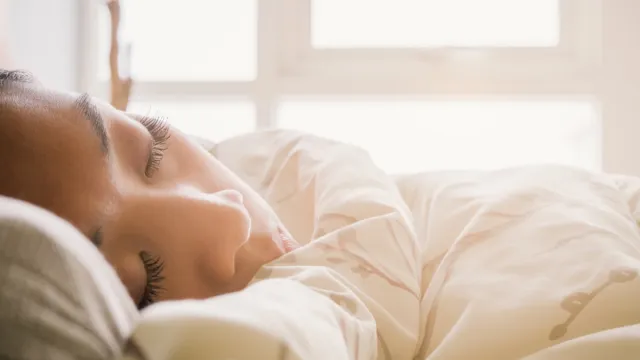
We all need sleep, but quality shut-eye is sometimes elusive. It can be downright distressing when you feel like sleep is evading you, especially when it begins to affect your focus or your mood. And while you might attribute your lack of sleep to occasional insomnia or anxiety, certain habits could be impacting how well you rest every night. According to Vanessa Hill, sleep scientist and PhD researcher at Central Queensland University in Australia, there are five unhealthy sleep habits that she avoids. Read on to find out what she never does when it comes to her sleep.
RELATED: I’m a Sleep Doctor and This Is the No. 1 Red Flag I Watch For.
1
I never ignore loud snoring.
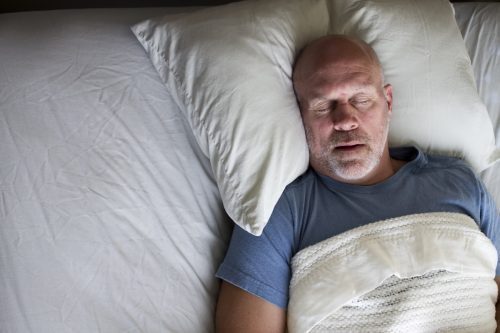
In a Sept. 2022 TikTok video, Hill laid out the habits she avoids, with the first being ignoring loud snoring.
“I would never let loud snoring go unchecked in either myself or my partner,” Hill says in the video, stressing that it’s a serious issue and not something to laugh at.
“A lot of people come and tell me like it’s a joke and really funny that they need to go and sleep in the other room because their boyfriend or partner or husband snores really loudly—and I’m like, mate, they need to go to a [sleep] clinic,” she says.
According to Hill, loud snoring can signal sleep apnea—a condition where breathing starts and stops, per the Mayo Clinic.
“Untreated sleep apnea can have really bad health consequences like diabetes or stroke, or even heart failure,” Hill notes.
RELATED: New Study Reveals the Best Bedroom Temperature for Perfect Sleep.
2
I never skip trips to a sleep specialist.
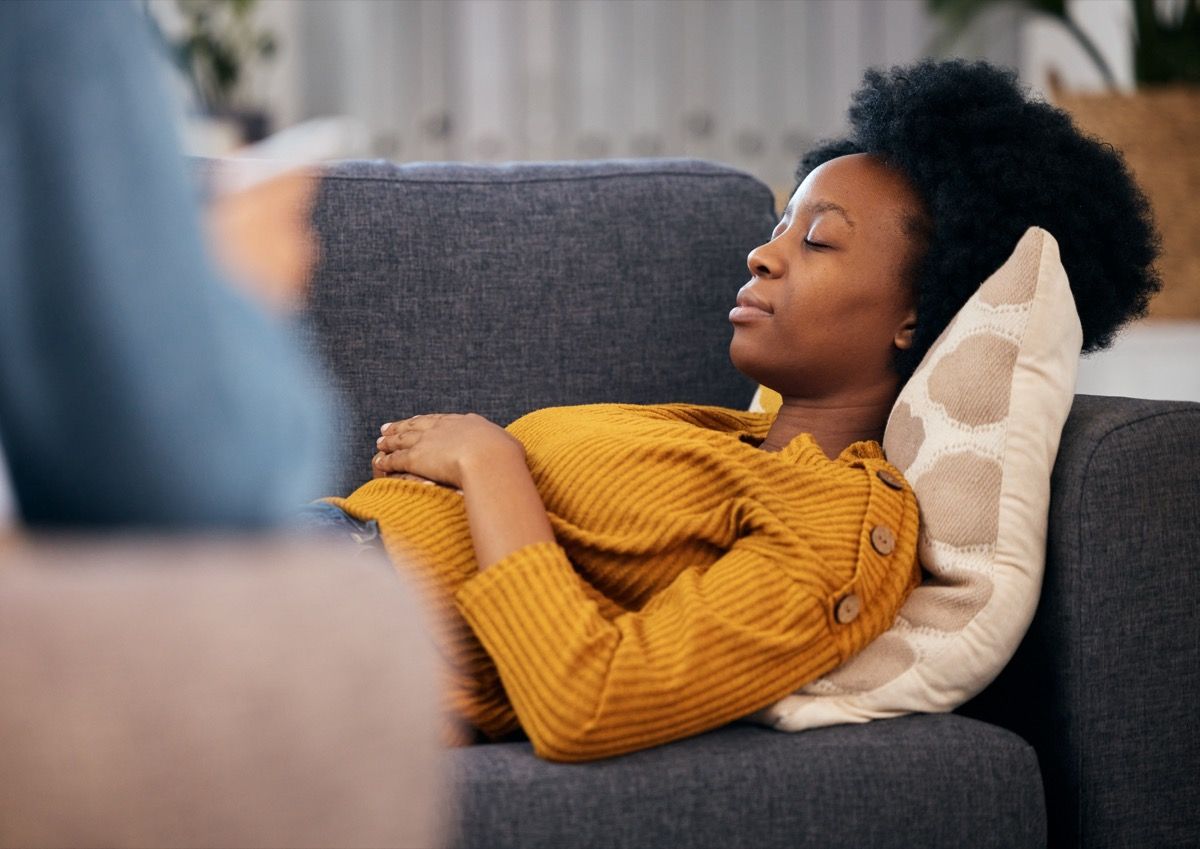
Hill stresses that if you’re having issues sleeping and seek out your general practitioner (GP), don’t stop there.
“If I saw my GP or primary care doctor about a sleep problem—even if I was just having consistent trouble falling asleep, or if I kept waking up during the night—I would really push to be referred to a sleep psychologist or a sleep specialist,” she says.
According to Hill, primary care physicians don’t receive comprehensive training in the best approaches to sleep. (Harvard Medical School points to a recent survey of four-year medical school curriculum that revealed less than two hours of formal education is directed at sleep, on average.)
“It is absolutely no fault of their own, but primary care doctors receive an absurdly small amount of training on sleep, and getting the right treatment, which includes special sleep therapy from a sleep psychologist, can have long-lasting, positive effects on your sleep and your overall health,” Hill explains.
3
I never have caffeine in the evening.
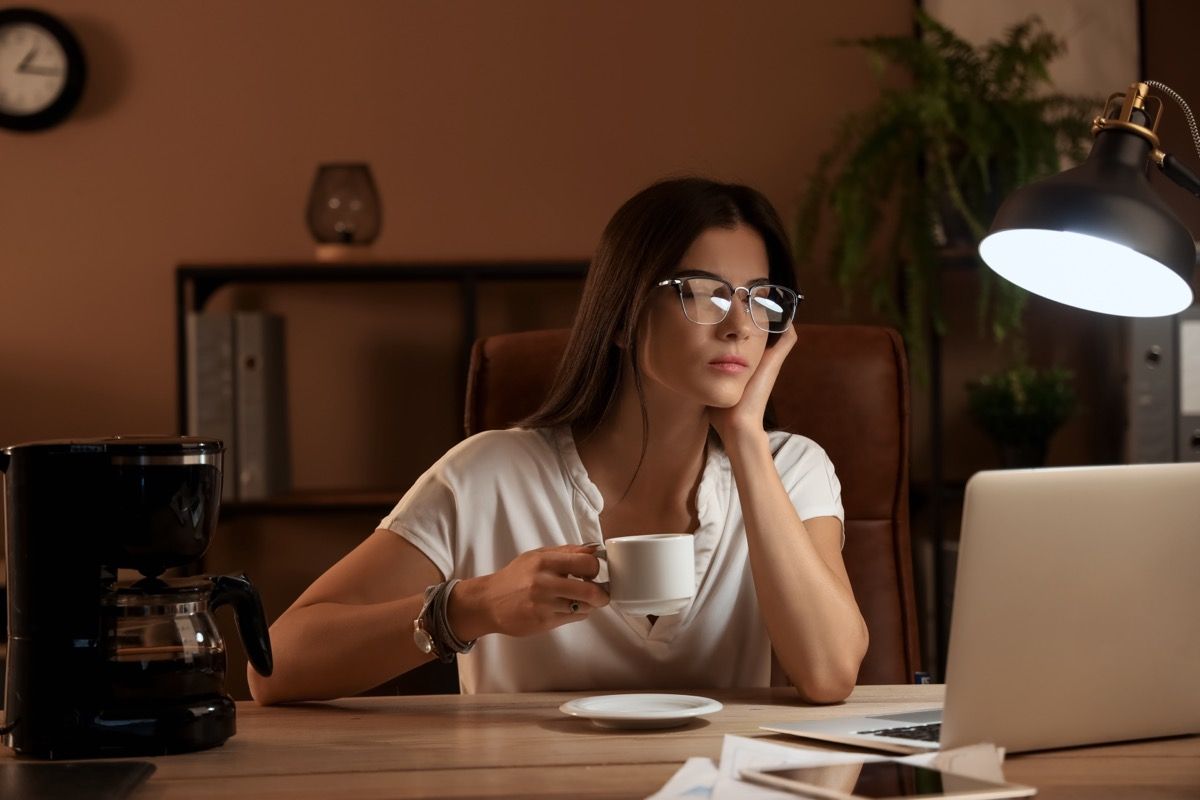
While it’s common knowledge that caffeine will keep you awake, sometimes we do indulge in a soda in the evening or perhaps an after-dinner espresso. But according to Hill, this is something you should never do if you value your sleep.
“I would never have caffeine in the evening. It’s just not worth it when there’s so many good caffeine-free options available,” she says.
Illustrating this, a Nov. 2013 study published in the Journal of Clinical Sleep Medicine, found that having caffeine up to six hours before you hit the hay has “important disruptive effects on sleep.” So, if you regularly indulge in that 4 p.m. cup of coffee to push through the workday and then try to sleep at 10 p.m., reconsider your approach.
RELATED: 7 Bedroom Changes That Can Help You Sleep, According to Feng Shui Experts.
4
I never keep bright lights on in the bedroom.
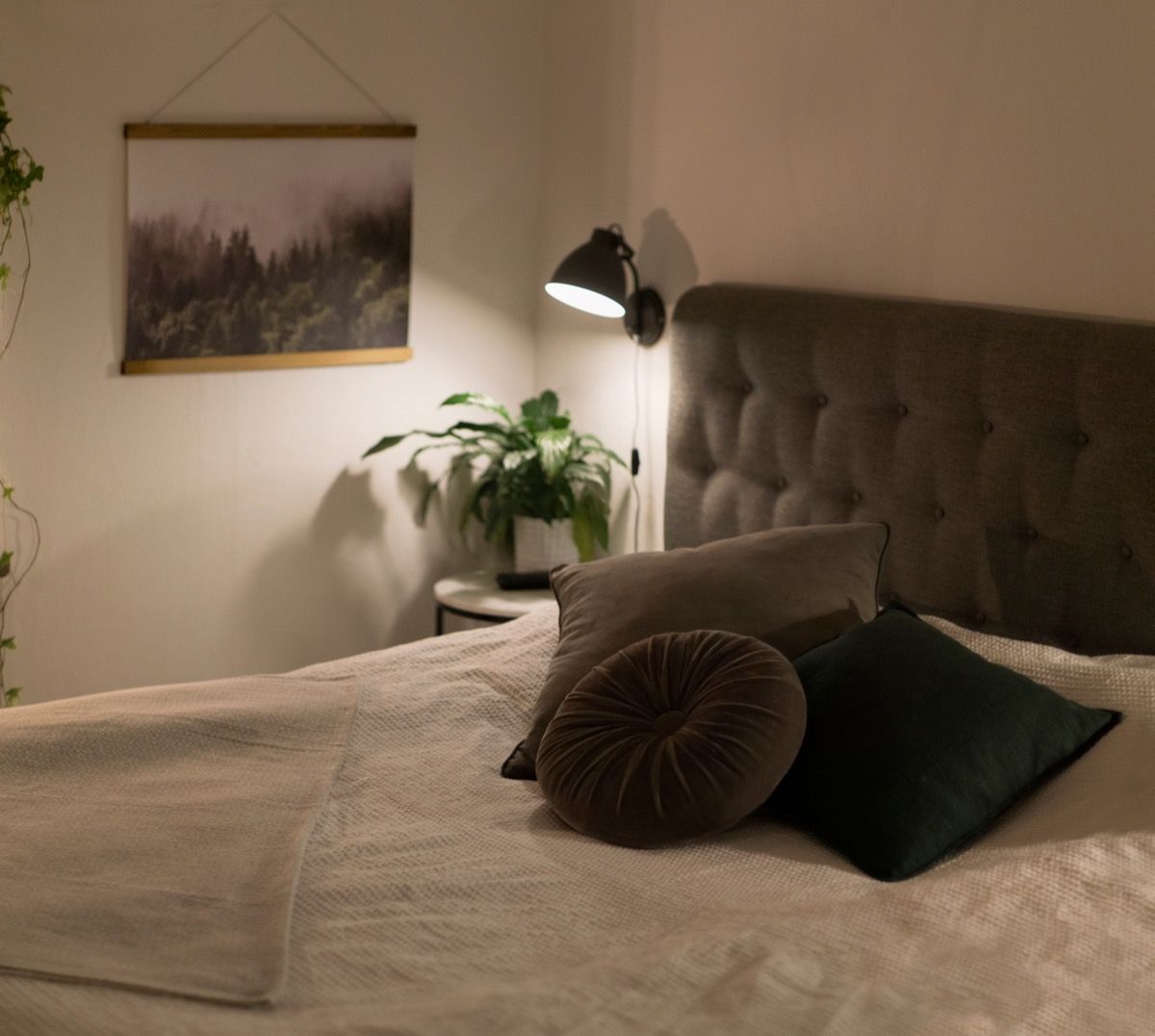
Another sleep hygiene no-no is keeping bright lights turned on before bedtime.
“I would never keep bright, fluorescent lights on all the way up until I go to bed,” Hill shares. “It suppresses your natural production of melatonin.”
Hill specifically recommends dimming your lights—and so does the National Sleep Foundation (NSF).
Per the foundation’s website, dim, dark environments help you sleep, so you should limit your light exposure in the evening. This includes lighting from your phone, TV, or laptop, which may be interrupting your brain’s melatonin production, the NSF adds.
Wondering what time to wind down? According to the NSF, your circadian rhythm (your body’s internal clock) is most sensitive to light one hour after you usually get up, and roughly two hours before your bedtime through the night.
5
I never force myself to get up early.
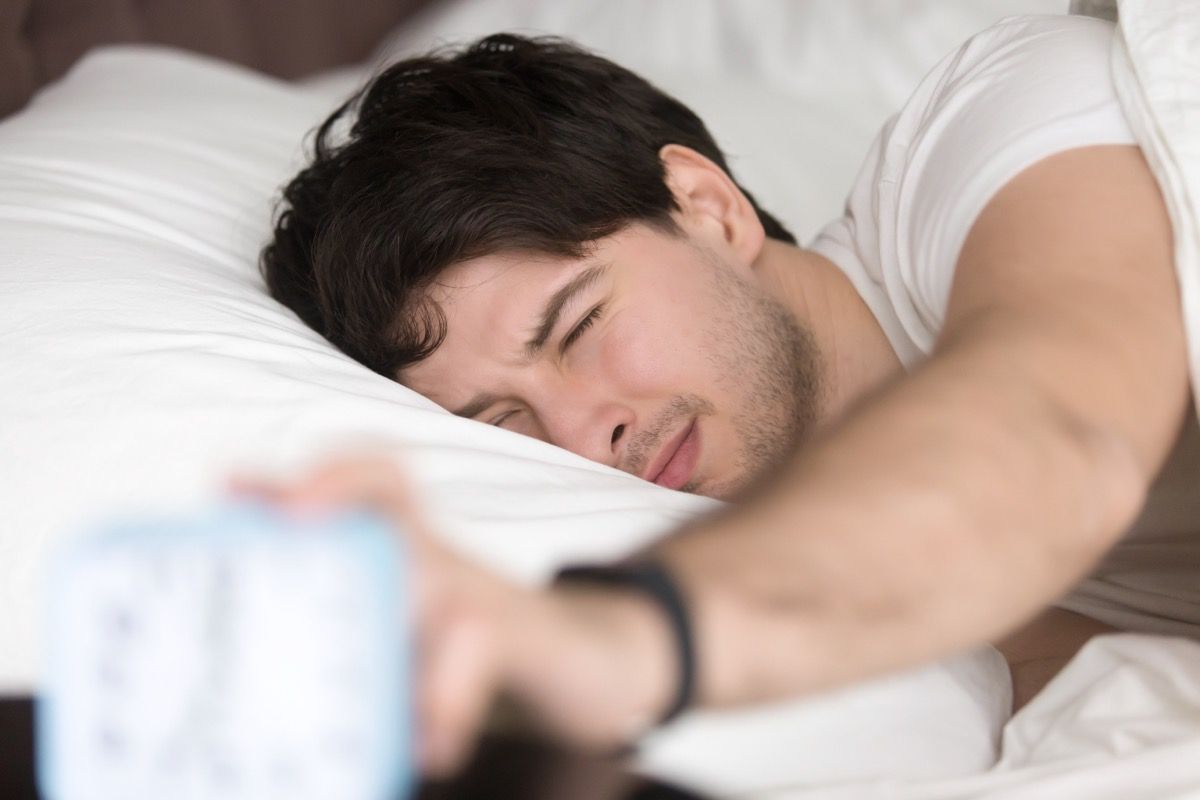
Hill’s final suggestion is to avoid forcing yourself to be up and at ’em too early.
“I would never force myself to get up super early, like at 5 a.m., for some ultra-productive, ‘that girl’ morning routine,” she says. “Honestly, your sleep and your health are way more important than your productivity.”
However, if you’re a habitual early riser, you don’t necessarily have to switch up your routine.
In response to a commenter who wrote that they go to bed between 8:30 and 9 p.m. and wake up at 4:30 a.m., Hill responded that it’s “whatever works for you!”
“Sometimes I am jealous of natural early birds because sunrise is so peaceful and I never see it,” she wrote in a reply.
For more wellness advice delivered straight to your inbox, sign up for our daily newsletter.